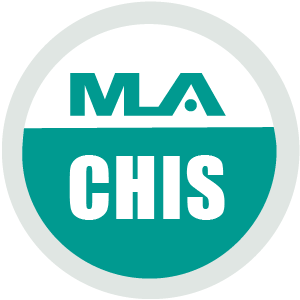May
26

Posted by liaison on May 26th, 2023
Posted in: #CC/Academic List, #Health Interest List, #Health Sciences List, #Public/K-12 List, All Members
Initiating “Co-Learning Communities” in the Public Health Workforce:
Leveraging Training, Continuing Education and Credentialing via the Network of the National Library of Medicine (NNLM)
Did you know? The National Network of the Library of Medicine (NNLM) is not just a network of librarians and libraries? NNLM has a robust website that includes resources for anyone working to improve community health. Those of us working in public health fit right into this information community!
By now we all know that public health is much more than sanitation and restaurant inspections! It is prevention, it is addressing causes of ill health from “upstream,” it is risk factors and protective factors, and social determinants of health. Just like the public we serve, we are constantly bombarded with information, sometimes reliable, sometimes “misinformation,” frequently confusing. Some, like the World Health Organization have referred to this as an “Infodemic” in the wake of COVID-19, and over the years many effective tools have been developed to help people to navigate information with a critical eye (as shared in this resource guide “Evaluating Information” from Sheridan Libraries at Johns Hopkins University).
The public health workforce includes a range of roles from epidemiologist to public health nurse to community health worker or Promotor(a) de Salud. The public looks to us for reliable information about their health just as much as they may turn to public or academic libraries. In fact, public libraries and their personnel also play an essential role in health information access and literacy. And sometimes the jargon gets in the way! In libraries there’s “information literacy”, in public health there’s “health literacy”, and where the two come together, there’s “health information literacy.”
As a public health liaison librarian, “embedded” at a college of public health, my own goal in taking this “co-learning community” approach was to bring the public health workforce into the picture, and “meet them where they’re at,” to learn together and improve both our own information literacy, and our ability to contribute to improving consumer health information literacy.
Piloting in Arizona: Some of us prefer learning on our own, on our own time, but many also like to have a peer network or community with similar roles or interests where we can “bounce ideas around,” compare notes, and learn together. I began by approaching existing public health partners to explore training needs and interests.
 Right away, most interest centered on consumer health information, and so the MLA Consumer Health Information Specialization (CHIS) and NNLM’s Medline Tutorial for Librarians & Health Educators (on demand) was a perfect starting point!
Right away, most interest centered on consumer health information, and so the MLA Consumer Health Information Specialization (CHIS) and NNLM’s Medline Tutorial for Librarians & Health Educators (on demand) was a perfect starting point!
I held several orientation sessions with our College of Public Health and its Academic Health Department, local health departments, UArizona Mobile Health Unit personnel and rural library personnel. My approach was NOT to overwhelm people with yet another training or webinar, but to enhance what is already offered, fill in some gaps in training venues, open up the awareness of NNLM as a reliable training and information source, and to highlight the NNLM as an additional path either to obtain specialization or credentials, or keep up on continuing education credit hours. The simple act of walking them through the website, sharing the training page, steps for registration for classes, and steps for subsidizing CHIS via the NNLM page, and fielding questions throughout ensured a lively and engaging group conversation.
Finally, during the overview session and in subsequent communications, I explored preferred learning modalities, and interest in networking as a “co-learning community” moving forward. To date, two co-learning cohorts have joined “debriefing” sessions via zoom. In these sessions we discussed the learning interface, courses taken so far, classes of interest, and progress towards CHIS specialization. It is still early stages, with about 30 people actively engaging, but there will be informal sessions at least quarterly as we continue. So far things are evolving at a healthy pace, new connections are solidifying, and more co-learning partnerships are forming with health department personnel and other workforce members.
If you would like to adopt or adapt this “co-learning community” model in your own area, here are some things to keep in mind:
Jean McClelland is an Assistant Librarian, Liaison to the Mel and Enid Zuckerman College of Public Health (MEZCOPH) at the University of Arizona, and piloted this project with the support of the Arizona Health Sciences Library subcontract with the University of Utah, Regional Library of Medicine (RLM), Region 4 of the National Network of the Library of Medicine (NNLM)